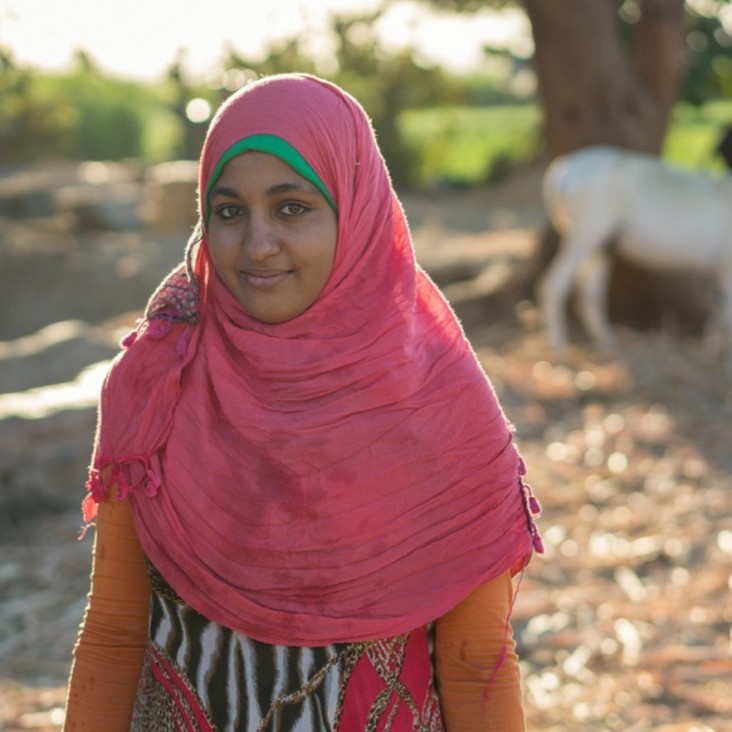
Overview
USAID’s support to Egyptian agriculture over the past 40 years has improved productivity, exports, and earnings for low-income Egyptians.
Agriculture is a major component of the Egyptian economy, contributing up to 14.5 percent of GDP and 28 percent of all jobs. Agriculture employs almost 45 percent of all women in the workforce. USAID’s program is focused on Upper Egypt, where over 55 percent of employment is agriculture-related.
The agriculture sector in Egypt is dominated by small farms which use traditional practices that do not comply with internationally recognized standards. For example, farmers tend to overuse and misuse agricultural chemicals and use outdated technologies and tools for land preparation, irrigation, and harvesting. As a result, farmers experience increased production costs, reduced yields, decreased soil fertility, and limited marketing opportunities. They are further constrained by lack of cold storage infrastructure, transportation systems, and market information.
Production and Marketing
As a Feed the Future-aligned mission, USAID/Egypt is addressing these challenges by strengthening the agriculture supply system based on market demand for high value crops, such as tomatoes and green beans. The program is multifaceted with each component strategically complementing the others by enhancing the productivity of the entire agriculture value chain, beginning on the farm and ending when products reach consumers. USAID introduces innovative technologies that enable farmers with fewer than ten acres of land to be more responsive to the needs of local and foreign buyers, leading to reliable, sustainable results. For example, USAID is providing training to farmers to achieve international quality standards certification, thus helping them gain the confidence of exporters. With direct access to the international markets, farmers make nearly twice what they would on the local market.
Transporting Produce to Market
Transporting produce to market is challenging due to a lack of cold storage infrastructure in Upper Egypt. Farmers need to ship their produce several hundred kilometers to Cairo in temperatures often reaching above 40 degrees Celsius. To improve the quality of shipments on arrival, USAID is establishing small-scale pack houses closer to farms to enable quick and reliable packaging that can withstand travel. USAID also provides refrigerated trucks to qualified vegetable producer organizations to aid transport of produce from farm to pack house, and from pack house to markets, airports, and warehouses. In this way, farmers can receive higher prices for their crops.
Capacity Building
To build capacity in the private sector, USAID established a regional training center to increase and improve the productivity of farmers, laborers, pack house managers, and buyers. This training center is part of a public-private partnership with Upper Egypt’s first large-scale cold storage pack house located four kilometers from the Luxor airport. This facility has already increased market interest in the region, as both the quality and quantity of vegetable production in Upper Egypt is becoming more reliable.
Workforce Development
Workforce development and women’s empowerment are essential to ensure the sustainability of these efforts. Through working with agriculture technical schools, universities, and research institutions, USAID is strengthening the quality of education and linking students with commercial farms and factories for internships.
Current Activities
Feed the Future Egypt Food Security and Agribusiness Support is USAID/Egypt’s core agriculture activity, supported by the U.S. government’s Feed the Future initiative. Using a market-driven approach, USAID is increasing agriculture-related incomes of 14,000 farmers through strengthening sustainable fruit and vegetable value chains for domestic and export markets. The activity is incorporating innovative technologies in small-scale cold storage infrastructure and irrigation while working with farmers on production, post-harvest processes, marketing, and nutrition. Implementing Partner: Culturing New Frontiers in Agriculture (as part of the Volunteers for Economic Growth Alliance); Life of Project: July 1, 2015-June 30, 2020; Total Estimated Cost: $23 million; Bilateral Agreement: Agribusiness for Rural Development and Increasing Incomes (ARDII).
Premium Project for Egyptian Small Growers is helping Egyptian farmers comply with GLOBAL GAP and Fairtrade standards so farmers can access local and international fresh produce markets, sustainably improving their socio-economic conditions. The project works with small producer associations in establishing sorting, grading, and packing facilities that meet international food safety and quality criteria. It also enhances employability skills at agriculture technical schools through improving the quality of instruction and connecting schools with research institutions and the private sector. Implementing Partner: Blue Moon Ltd; Life of Project: August 3, 2011- February 28, 2018; Total Estimated Cost: $7,344,215 million; Bilateral Agreement: ARDII.
Advanced Marketing and Agribusiness Logistics is a partnership with the Horticulture Export Improvement Association (HEIA) that is helping farmers integrate into high-value commercial horticulture markets. USAID is leveraging HEIA’s investment in a cold storage terminal at Luxor Airport and building a regional training center to strengthen the institutional capacity of farmers, facilitate contracts between farmers and buyers, improve access to and use of market intelligence, and improve food quality and safety. Implementing Partner: ACDI/VOCA; Life of Project: February 4, 2015-February 3, 2018; Total Estimated Cost: $5.5 million; Bilateral Agreement: ARDII.
Women’s Employment Promotion is a pilot project to advance safe and women-friendly workplaces within the agribusiness sector. The project targets six agribusiness firms to assist them to reposition themselves as models in gender-balanced workplace policies, attitudes, and inclusive work environments. Implementing Partner: UN Women; Life of Project: July 14, 2015-July 13, 2017; Total Estimated Cost: $900,000; Bilateral Agreement: ARDII.
The Evaluating Impact and Building Capacity project is designed to identify and determine the overall effects of USAID’s agriculture interventions. The results of the impact evaluations are expected to generate new evidence to inform policy and program design and implementation. The focus of these evaluations will include examining how to better leverage the direct link from agriculture to health and nutrition, particularly to address pervasive challenges in stunting and malnutrition. Implementing Partner: International Food Policy and Research Institute; Life of Project: July 1, 2015-June 30, 2020; Total Estimated Cost: $5.5 million; Bilateral Agreement: ARDII.








Comment
Make a general inquiry or suggest an improvement.